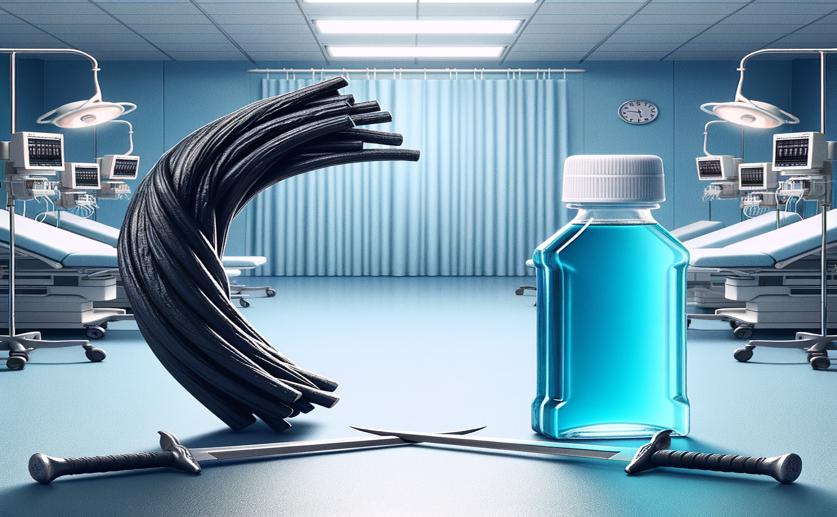
Licorice vs. Chlorhexidine Mouthwash for Oral Health in ICU Patients
Jim Crocker
13th June, 2024

Image Source: Natural Science News, 2024
Key Findings
- Researchers at Hamadan University of Medical Sciences studied the effects of licorice mouthwash on oral health in ICU patients in Iran
- Both licorice and chlorhexidine mouthwashes significantly improved oral health in intubated patients
- Chlorhexidine was more effective in reducing dental plaque and thinning saliva compared to licorice mouthwash
References
Main Study
1) Comparison of the effect of licorice and chlorhexidine mouthwash on the oral health of intubated patients in the intensive care unit.
Published 12th June, 2024
https://doi.org/10.1186/s12903-024-04456-7
Related Studies
2) Licorice and its potential beneficial effects in common oro-dental diseases.
3) Efficacy of Licorice on Salivary Streptococcus mutans Levels vs Chlorhexidine Mouthwash in High Caries Risk Patients: A Randomized Clinical Trial.
Journal: The journal of contemporary dental practice, Issue: Vol 22, Issue 8, Aug 2021
4) A Nurse-Driven Oral Care Protocol to Reduce Hospital-Acquired Pneumonia.



 22nd April, 2024 | Jim Crocker
22nd April, 2024 | Jim Crocker